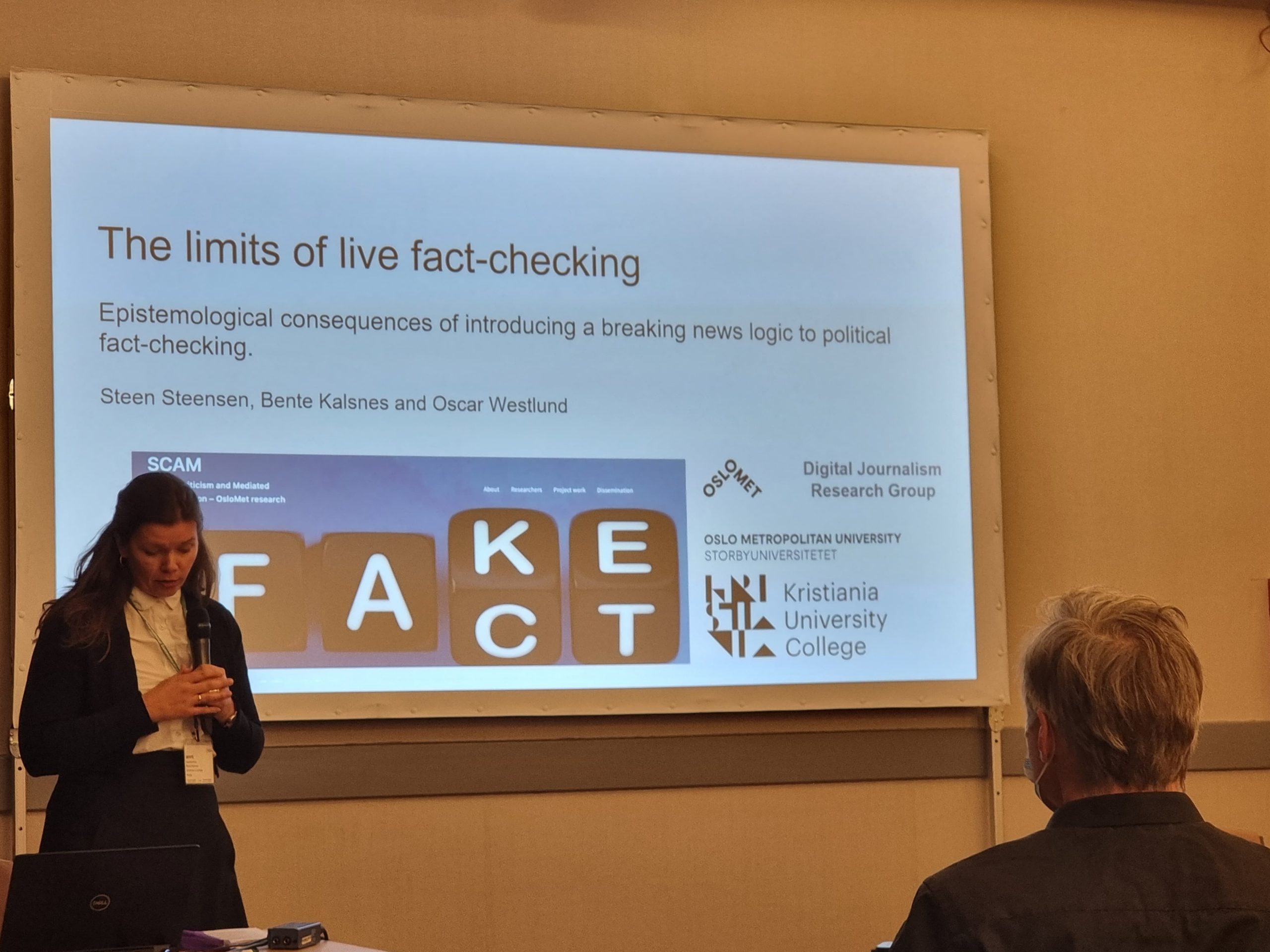This February, members of the SCAM team have published a full-length article in New Media & Society about live fact-checking. This article, entitled “The limits of live fact-checking: Epistemological consequences of introducing a breaking news logic to political fact-checking“, draws from newsroom observation and interviews at the Norwegian fact-checking organisation Faktisk.no. Focused on the Norwegian parliamentary election campaign in 2021, this paper investigates the epistemological consequences of introducing a breaking news logic to political fact-checking.
Team members Steen Steensen, Bente Kalsnes, and Oscar Westlund found that live political fact-checking confirmed (1) knowledge already believed to be true and (2) hegemonic perspectives on what constitutes important and reliable information. The findings thereby point to a potential reorientation of political fact-checking from being a critical corrective of political elites to confirming the perspectives and knowledge base of the same elites. The extended abstract for this article also won the 2022 award for best submission in Journalism Studies at the International Communication Association (presentation pictured above).

The second article, published in January 2023, focuses on the tradeoffs that fact-checkers, platforms, and journalists navigate around increasingly common partnerships. Published in the International Journal of Communication, ‘Knowledge Work in Platform Fact-Checking Partnerships‘ argues that resources and news values contribute to knowledge shaping of what it means to fight misinformation (e.g., focusing on debunking, resource-allocation inequalities), and what types of misinformation matter for the public. In particular, the article highlights two kinds of problems in the growing anti-misinformation field, namely, coordination (technical, as to how to integrate different efforts by multiple actors) and cooperation (different organizations have different goals). Team members Valérie Bélair-Gagnon, Rebekah Larsen, Lucas Graves, and Oscar Westlund drew from 54 interviews with participants across the globe in this study.
